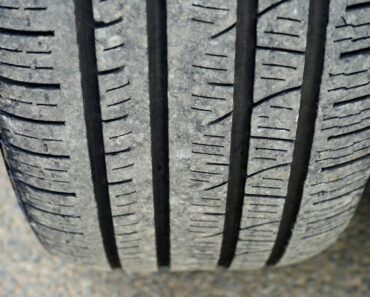Regular oil changes are a crucial part of vehicle maintenance that keeps your engine running smoothly and efficiently. However, life can get busy, and sometimes you might find yourself going over the recommended oil change mileage. So, what exactly happens if you exceed that limit? Is it a minor oversight, or could it lead to significant problems? This article will explore the potential consequences of going over your oil change mileage and provide you with practical tips to keep your engine healthy.
Why Are Oil Changes Important?
Before diving into what happens when you go over your oil change mileage, it’s essential to understand why oil changes are so important in the first place.
The Role of Engine Oil
Engine oil serves several critical functions in your vehicle:
- Lubrication: Oil lubricates the engine’s moving parts, reducing friction and wear.
- Cooling: It helps dissipate heat generated by the engine, preventing overheating.
- Cleaning: Oil carries away dirt, debris, and metal particles, keeping the engine clean.
- Corrosion Protection: It forms a protective layer on metal surfaces, preventing rust and corrosion.
- Sealing: Oil creates a seal between engine components, improving efficiency and performance.
The Importance of Regular Oil Changes
Over time, engine oil breaks down and loses its effectiveness. Contaminants build up, and the oil becomes less capable of performing its essential functions. Regular oil changes are necessary to remove dirty oil and replace it with fresh oil, ensuring the engine operates efficiently and reliably.
What Happens If You Go Over Your Oil Change Mileage?
Going over your recommended oil change mileage once in a while may not cause immediate damage, but consistently neglecting this maintenance task can lead to several problems. Here’s what can happen if you regularly exceed your oil change mileage:
1. Oil Degradation and Contamination
As engine oil ages, it begins to degrade and lose its ability to lubricate and protect engine components effectively. Additionally, contaminants such as dirt, debris, and metal shavings accumulate in the oil over time.
- Decreased Lubrication: Degraded oil loses its viscosity, which means it can’t lubricate the engine parts effectively. This increases friction and leads to wear and tear on the engine.
- Increased Contaminants: Contaminated oil can lead to sludge buildup, clogging oil passages and filters, reducing oil flow to critical engine parts.
2. Increased Engine Wear and Tear
When oil isn’t changed regularly, the engine’s moving parts experience more friction and heat. This accelerates wear and tear on components like pistons, cylinders, and bearings.
- Friction Damage: Without proper lubrication, metal components rub against each other, causing damage and leading to potential engine failure.
- Heat Build-Up: Insufficient lubrication results in higher temperatures, which can warp engine parts and cause seals to fail.
3. Reduced Fuel Efficiency
Old, degraded oil can negatively impact your vehicle’s fuel efficiency. This is because the engine has to work harder to overcome increased friction and maintain performance.
- Increased Fuel Consumption: An overworked engine consumes more fuel, leading to higher fuel costs over time.
4. Potential Engine Overheating
Oil helps to dissipate heat from the engine. When the oil breaks down, it loses its ability to cool effectively, which can lead to overheating.
- Risk of Engine Damage: Overheating can cause severe damage to the engine block, head gasket, and other critical components, leading to costly repairs or even engine replacement.
5. Voiding Your Warranty
If your vehicle is still under warranty, neglecting regular oil changes could void the warranty. Manufacturers typically require proof of regular maintenance, including oil changes, to honor warranty claims.
- Potential Financial Impact: Without warranty coverage, you could be responsible for costly repairs that would otherwise be covered.
How Long Can You Go Over Your Oil Change Mileage?
While it’s best to follow the manufacturer’s recommended oil change intervals, many modern vehicles are designed to handle a bit of flexibility. Here are some general guidelines:
1. A Few Hundred Miles Over
If you’re just a few hundred miles over your oil change interval, there’s usually no immediate cause for concern. Modern synthetic oils and engines are designed to be more forgiving, and a small delay is unlikely to cause significant harm.
2. A Few Thousand Miles Over
If you go several thousand miles over your recommended oil change interval, the risk of damage increases. The oil’s effectiveness diminishes, and contaminants can build up to dangerous levels, leading to the issues mentioned earlier.
3. Ignoring Oil Changes Altogether
Consistently neglecting oil changes can lead to severe engine damage, decreased performance, and costly repairs. The longer you go without an oil change, the greater the risk of significant engine problems.
Signs That Your Car Needs an Oil Change
If you’re not sure when your last oil change was, here are some signs that your vehicle might be due for an oil change:
- Check Engine or Oil Change Light: Most modern vehicles have a light on the dashboard that illuminates when an oil change is due.
- Noisy Engine: If your engine sounds louder than usual or you hear knocking sounds, it could be a sign that the oil isn’t lubricating the engine properly.
- Dark or Dirty Oil: Fresh oil is usually amber-colored and translucent. If the oil looks dark or dirty when you check it, it’s time for a change.
- Oil Smell Inside the Car: If you smell oil inside the vehicle, it could indicate a leak or that the oil is burning, which can happen if the oil is old and degraded.
- Excessive Exhaust Smoke: If you notice blue or dark smoke coming from your exhaust, it could be a sign of an oil issue.
Tips for Staying on Top of Oil Changes
To avoid the negative consequences of going over your oil change mileage, here are some tips to help you stay on track:
1. Follow the Manufacturer’s Recommendations
Always refer to your vehicle’s owner’s manual for the manufacturer’s recommended oil change intervals. These guidelines are based on extensive testing and are designed to keep your engine in optimal condition.
2. Use High-Quality Oil
Using high-quality synthetic oil can provide better protection and last longer than conventional oil. Synthetic oils are designed to withstand higher temperatures and resist breakdown, offering better performance and protection.
3. Set Reminders
Set reminders on your phone or use a maintenance tracking app to alert you when an oil change is due. Staying organized can help you avoid missing oil change intervals.
4. Regularly Check Your Oil Level
Make it a habit to check your oil level regularly. This can help you identify potential issues early, such as leaks or excessive oil consumption, and ensure your engine always has enough oil.
5. Schedule Oil Changes with Other Maintenance
Combine oil changes with other routine maintenance tasks, such as tire rotations or inspections, to streamline your car care routine and ensure you don’t forget.
Conclusion
While going slightly over your oil change mileage may not immediately damage your engine, consistently neglecting this essential maintenance can lead to serious problems, including increased engine wear, reduced fuel efficiency, and potential engine failure. By understanding the importance of regular oil changes and following the tips provided in this article, you can keep your engine running smoothly and avoid costly repairs.
Quote:
“Regular oil changes are the lifeblood of your engine. Staying on top of this simple maintenance task can save you from costly repairs down the road.”






